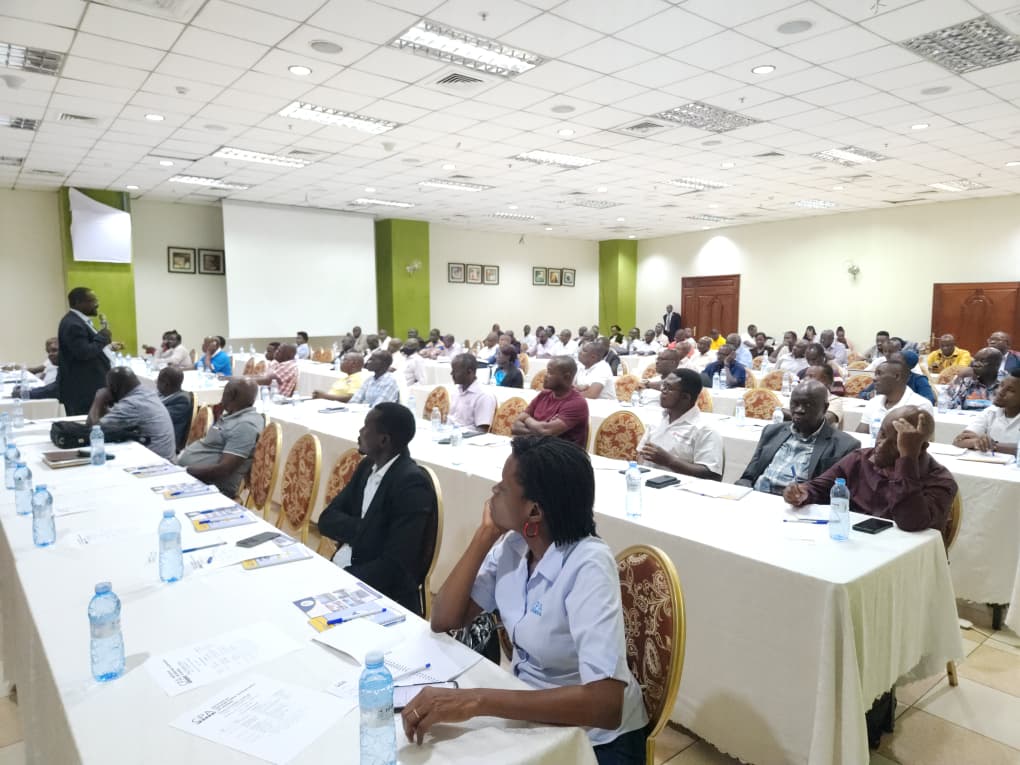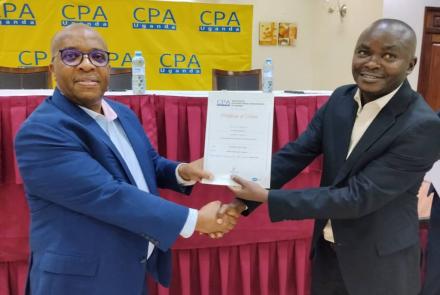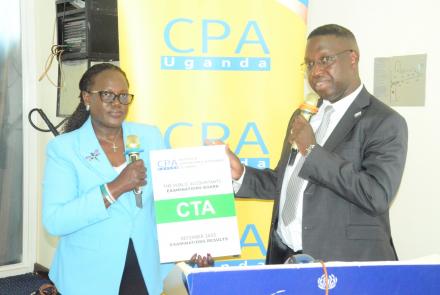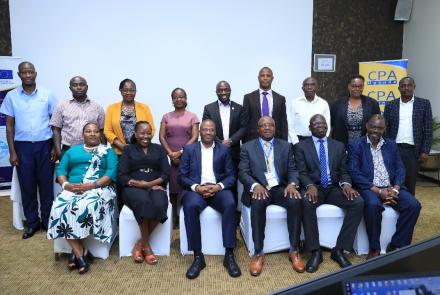By Abraham Malinga
ICPAU
The Institute of Certified Public Accountants of Uganda (ICPAU) held the 2025 Practitioners Forum on Friday, September 12, under the theme “Relationships that Last: Developing Uganda Together.” The forum brought together accountancy practitioners, regulators, and the Uganda Revenue Authority (URA) to strengthen collaboration, promote tax compliance, and address audit quality challenges.
The Commissioner Domestic Taxes Denis Kugonza Kateeba, in his presentation, commended practitioners for their central role in supporting taxpayers through bookkeeping, advisory, and compliance services. He noted that practitioners encourage the use of digital tools such as EFRIS and DTS, and enhance voluntary compliance through accurate reporting. However, he pointed out persistent gaps, including failure by some to register as tax agents, quoting outdated laws, and, in certain cases, abetting tax evasion.
As a way forward, URA pledged regular trainings, greater automation of processes, and improved access to updated tax laws on its portal. The Commissioner reiterated the Authority’s commitment to working closely with ICPAU and practitioners to simplify compliance and strengthen trust between taxpayers and government.
A highlight of the forum was the announcement of the incorporation of the Accountancy Practitioners Forum Ltd (APF) in June 2025. CPA Ronald Mutumba, the Implementing Director, explained that the APF was established as a company limited by guarantee to serve as a collective platform for practitioners. Its objectives include improving audit quality, promoting adherence to international standards, providing peer learning opportunities, and advocating for practitioners’ interests. The APF will also develop shared resources such as a quality management toolkit, audit software, and digital libraries to improve efficiency and accessibility across firms.
The forum further discussed the growing challenges of audit quality, with a presentation on “Solving the Audit Quality Crisis.” Speakers highlighted pressures facing firms today, including fee constraints, talent retention, and regulatory inspections. Five pillars of audit quality—leadership, independence, client acceptance, human resources, and engagement performance—were identified as areas of concern. Firms were encouraged to strengthen training, adopt structured risk assessments, and embrace independent engagement quality reviews to mitigate risks and enhance performance.
Speakers emphasized that investing in quality is not a cost but an enabler of profitability, reputation, and long-term sustainability. Stronger quality systems, they noted, will not only reduce regulatory risks but also help firms attract better clients and retain skilled staff.
The forum closed with a renewed call for closer collaboration between ICPAU, URA, and practitioners, underlining the shared commitment to integrity, continuous improvement, and positioning the profession to contribute meaningfully to Uganda’s economic development.





